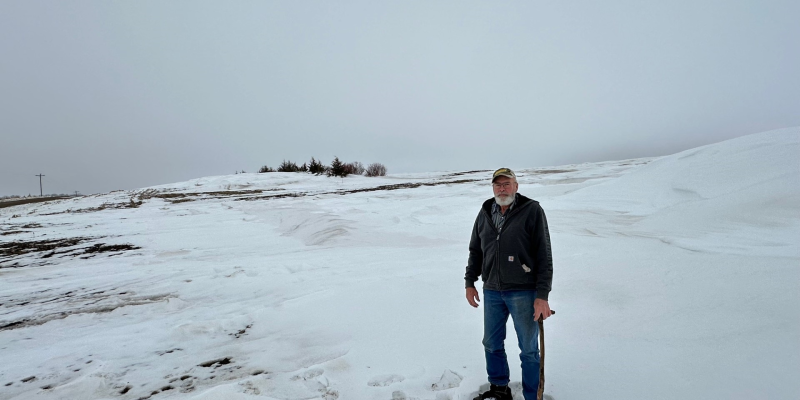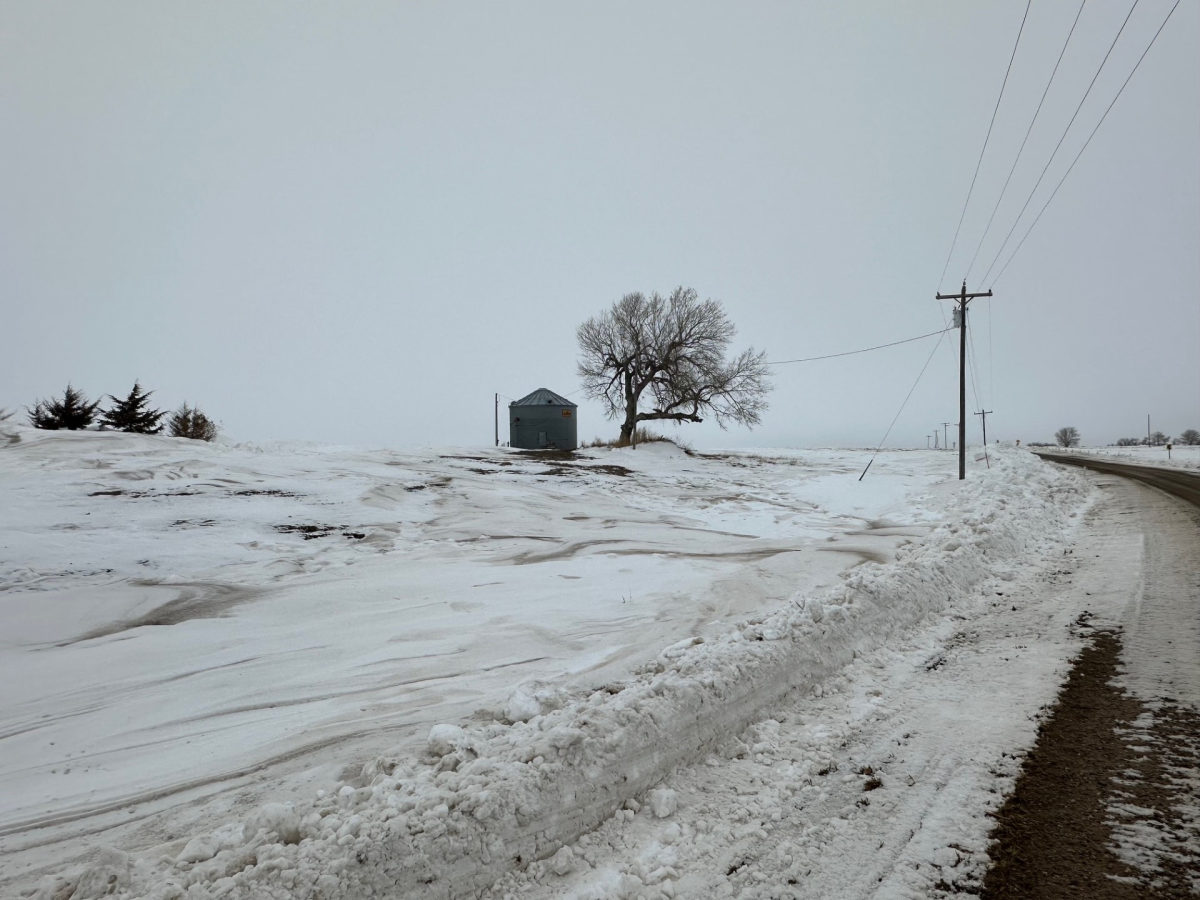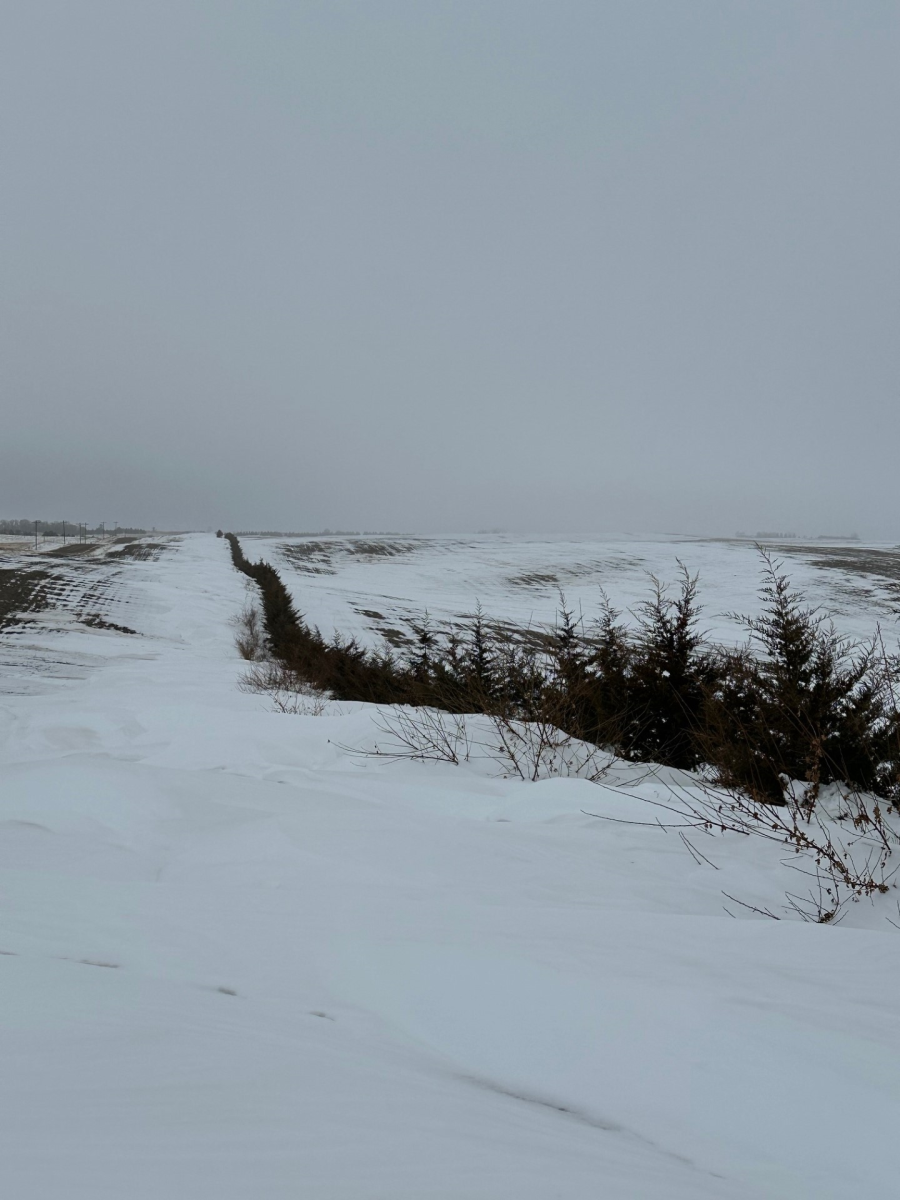WINDBREAKS WORKING FOR YOU

The first Nebraska settlers realized the value of trees. They planted millions of them on barren homesteads to help fulfill basic needs for protection, building materials, fuel, and food. Planting trees became a Nebraska tradition, and Nebraska proudly became known as “The Tree Planter State.” Today, Nebraskans benefit from the trees planted by their forefathers. Trees don’t have to have been planted hundreds of years ago to see their benefits; in a few years, with the right conditions and proper care, trees can show their true colors rather quickly.
This winter has been a true test of windbreaks with cold temperatures, high winds, and large amounts of snow that fell in December and January. Windbreaks are important for blocking such prevailing winds and holding back large amounts of snow.
One LCNRD resident is now witnessing the benefit of planting a windbreak ten years ago and was able to watch the windbreak work for him. Ray Kneifl of Newcastle planted two, quarter-mile windbreaks along the west side of the road that passes by his farm. This windbreak consists of Colorado Blue Spruce, Black Hills Spruce, Eastern Cotoneaster, and Redosier Dogwood and is planted about 100 feet back from the county road. Kneifl enrolled the acres that these trees are planted on into the CRP program and farms the rest of the field, including the area between the trees and the road.
Kneifl said he did not take much notice of the windbreak until neighbors commented about how well the windbreak was keeping the snow from blowing onto the county road. The snow that accumulated on the road was about one-quarter the amount of the snow removed outside of the windbreak area. “You don’t often see a windbreak’s true importance and utility until you have these extreme winter conditions, and then they come through,” said Kneifl.
If you are interested in planting a windbreak, contact your county NRCS office to plan. If you are looking to purchase a bundle of tree or shrub seedlings, contact LCNRD by March 31st.


